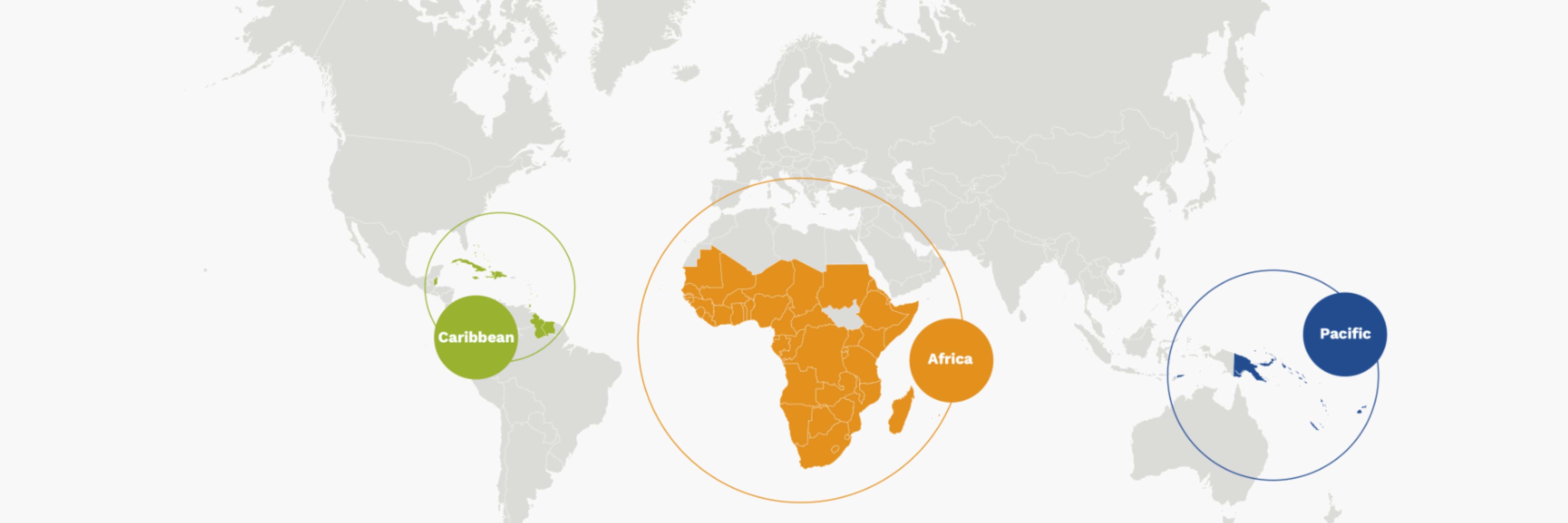About the Programme
The adverse impacts of climate change are a major challenge to the socio-economic development of developing countries, particularly the Least Developed Countries (LDCs), Small Island Developing States (SIDS) and Land-locked Developing Countries (LLDCs). The 79 Members of the Organisation of African, Caribbean and Pacific States (OACPS) are considered to be the most vulnerable countries to the existential threats of climate change. Yet Member States of the OACPS have contributed least to greenhouse gas emissions.

Climate change and the environment are at the heart of the 2030 Agenda for Sustainable Development and the Paris Agreement on Climate Change. Therefore, achieving sustainable development and mitigating the impacts of climate change are two sides of the same coin.
Reliable information on climate change and climate variability can build resilience to climate impacts. Science-based climate information is critical for countries and regions of the OACPS to increase their resilience for adapting to climate change by addressing and managing climate risks in a timely and effective manner.
The UN-Global Framework for Climate Services (GFCS) provides a consolidated framework with clear roles and responsibilities to facilitate the implementation of actions to improve climate-related outcomes at national, regional and global levels.
"Climate services", as defined by GFCS, include the timely production, translation, provision and use of climate data, information and knowledge for informed societal decision-making regarding climate risks. The use of climate information and forecasts is growing rapidly worldwide; however, many Member States of the OACPS lack the technological, human and institutional capacities to provide high quality climate services. Such services are crucial for enabling climate-informed decisions to be made and will hasten the mainstreaming of climate services and information into national and regional policy and planning processes.
The Intra-ACP Climate Services and related Applications Programme (ClimSA) is a EUR 85 M initiative of the OACPS and the European Union. It is an important investment under the 11th European Development Fund (EDF) aiming to strengthen the climate services value chain: from access to information, generation and provision of climate services to engagement and capacity buidling of users to ensure utilisation of these services.
ClimSA aims to support the climate information services value chain with technical assistance, financial assistance, and infrastructure and capacity building support to improve wide access and use of climate information and applications for decision making processes at all levels, in the six regions of the OACPS through eight Regional Climate Centres (RCCs).
As main users of climate services and the bridge to other final users, the African Regional Economic Communities (RECs), the African Union Commission (AUC), the Caribbean Meteorological Organisation (CMO) and the Secretariat of the Pacific Regional Environment Programme (SPREP) will be the focus of the action to ensure sustainability and utilisation of climate services.